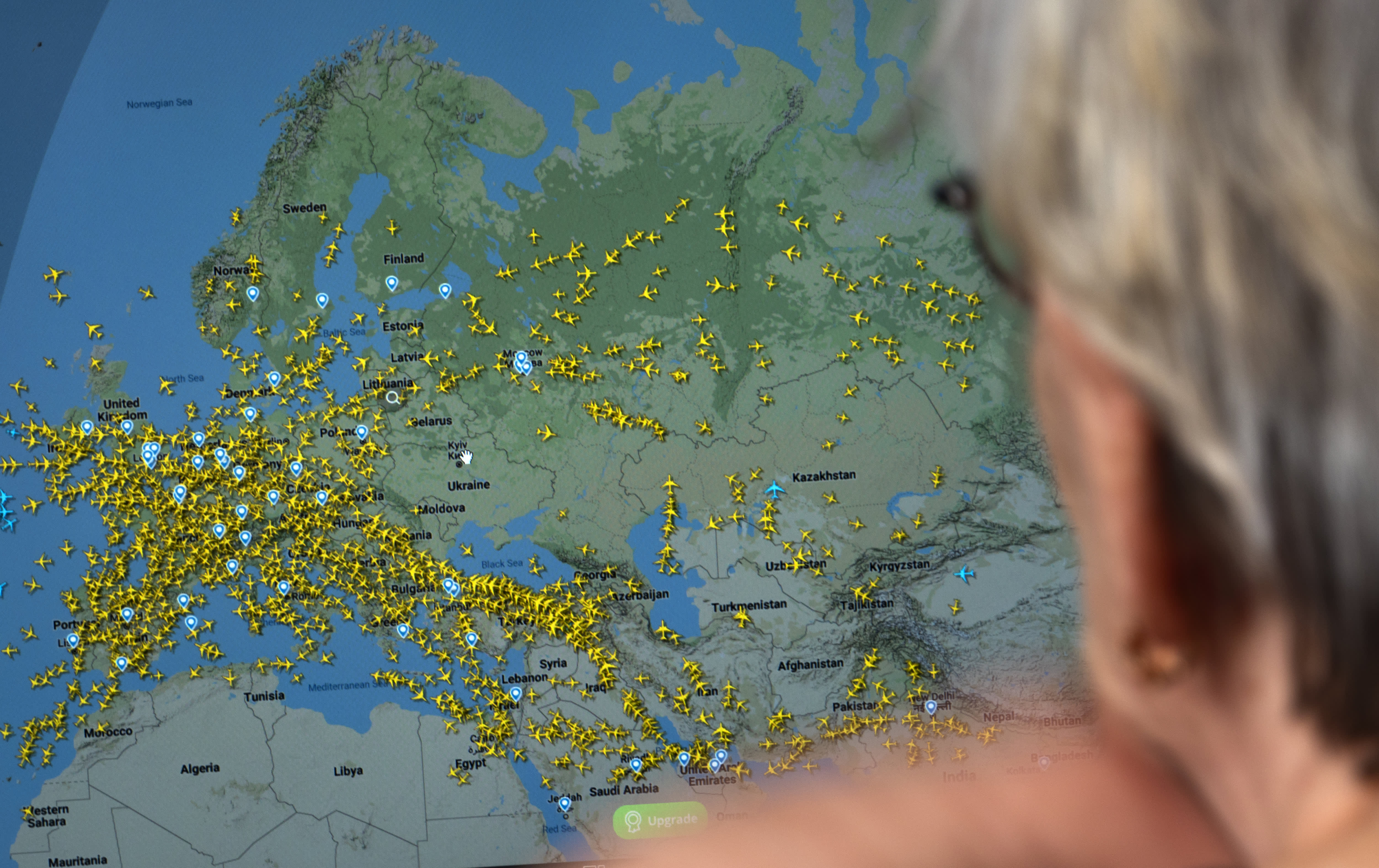Products You May Like
Russia’s invasion of Ukraine this week is ripping through the air travel industry, prompting no-fly zones and other restrictions.
Ukraine closed its airspace moments before Russia invaded early Thursday, choking off an exit point.
Discount carrier Wizz Air said Friday that it was trying to evacuate crews stranded in Ukraine.
“We are still working hard to get them out at the earliest opportunity,” spokeswoman Christie Rawlings said in an emailed statement. “We are in regular contact with all of the crew and can confirm that many of them have been able to get out of the country via ground transport. The majority of our employees based there are Ukrainian nationals.”
KLM Royal Dutch Airlines and Lufthansa Group previously halted Ukraine flights.
KLM told CNBC on Friday that it was also cutting some of its flights to Russia so crews wouldn’t have to overnight there.
No-fly zones for aircraft were extended to Moldova and parts of eastern Russia. Many airlines have avoided eastern Russia since Malaysia Airlines flight MH17 was shot down by a Russian missile there in 2014.
The backlash to Russia’s invasion included British officials banning Russian carrier Aeroflot from landing there, resulting in retaliation from Russia that prohibits British carriers from using its airspace.
Some airlines were rerouting planes around the potential conflict zone in the days before the invasion.
“Any diversions that aircraft have to make around the no-fly zone is going to add to fuel costs,” said Bruce Chan, a logistics analyst at Stifel.
Higher costs would come at a time when airlines are already grappling with a surge in fuel prices.
United Parcel Service started flying a more southerly route around Ukraine last week.
“While this alternate routing adds additional time to the flight, we feel this is a viable alternative to continue to provide safe and efficient operations,” the airline said in a message to pilots on Feb. 21. “We will continue to monitor the situation and provide additional updates to you when we receive them.”
Some international carriers had inquired about fuel and ground support availability at Anchorage Airport in Alaska, a major cargo airport, a spokesman told CNBC. The questions are a sign that airlines are developing contingency plans should more of Russian airspace be closed to them.
Delta Air Lines, for its part, on Friday said it suspended its codeshare agreement with Aeroflot, which allowed the carriers to book seats on one another’s flights.
